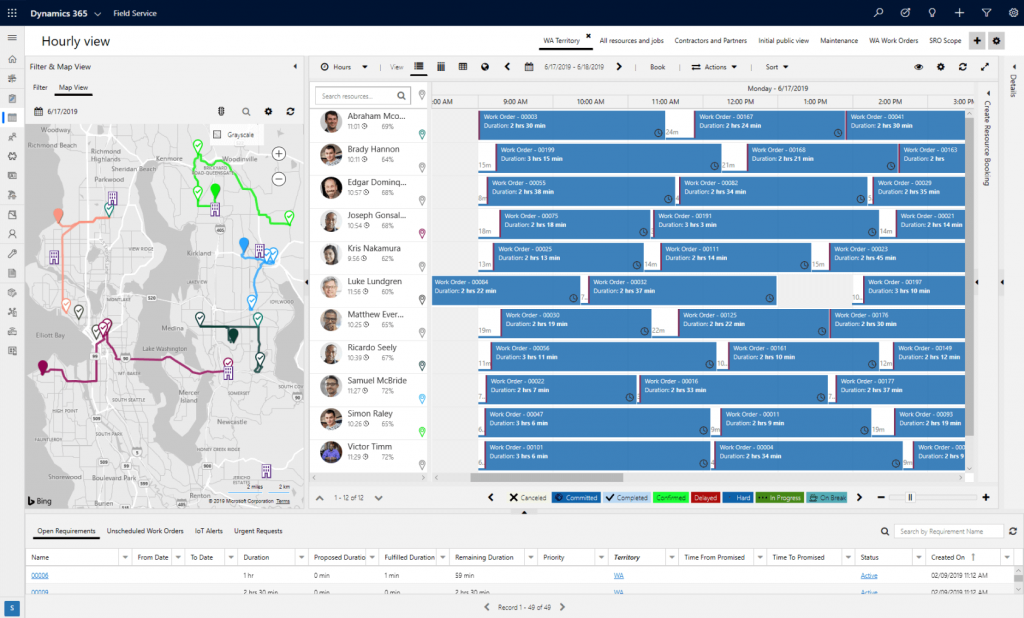Field service management CRM (customer relationship management) is a powerful combination that empowers businesses to streamline their field operations, enhance customer experiences, and drive growth. By integrating these two essential systems, organizations can gain a holistic view of their customers, improve communication and collaboration, and optimize their service delivery processes.
In this comprehensive guide, we will explore the concepts of field service management and customer relationship management, discuss the benefits and challenges of integrating these systems, and provide a step-by-step guide to successful implementation. We will also examine the latest trends and innovations in FSM CRM and offer key takeaways and recommendations to help businesses maximize the potential of this transformative technology.
Field Service Management (FSM)

Field service management (FSM) is a software solution that helps businesses manage their field service operations. It provides a centralized platform for scheduling appointments, tracking technician activity, and managing inventory.
Benefits of Implementing an FSM System
- Improved customer satisfaction: FSM systems can help businesses improve customer satisfaction by providing real-time visibility into technician schedules and locations. This allows businesses to respond to customer requests quickly and efficiently.
- Increased productivity: FSM systems can help businesses increase productivity by automating tasks such as scheduling and dispatching. This frees up technicians to focus on more value-added activities.
- Reduced costs: FSM systems can help businesses reduce costs by optimizing technician schedules and reducing the amount of time spent on administrative tasks.
Challenges Associated with FSM, Field service management crm
- Data integration: FSM systems can be challenging to integrate with other business systems, such as CRM and ERP systems.
- Cost: FSM systems can be expensive to implement and maintain.
- Training: FSM systems can be complex to use, so it is important to provide adequate training to users.
Customer Relationship Management (CRM)

Customer Relationship Management (CRM) is a business strategy that focuses on building and maintaining long-term relationships with customers. It involves managing all aspects of the customer lifecycle, from lead generation and sales to customer service and support.
Integrating CRM with FSM can provide a number of benefits, including:
- Improved customer service: CRM systems can provide FSM technicians with access to customer information, such as past service history and preferences. This can help technicians resolve customer issues more quickly and efficiently.
- Increased sales: CRM systems can help FSM technicians identify and track sales opportunities. This can help businesses close more deals and grow revenue.
- Improved communication: CRM systems can provide a central platform for communication between FSM technicians and customers. This can help ensure that customers are kept informed about the status of their service requests and that technicians are aware of any changes to the customer’s account.
However, there are also some challenges associated with CRM integration. These include:
- Data integration: Integrating CRM and FSM systems can be a complex and time-consuming process. It is important to ensure that the data from both systems is accurate and consistent.
- User adoption: FSM technicians may not be familiar with CRM systems. It is important to provide training and support to help technicians adopt the new system.
- Cost: CRM systems can be expensive to implement and maintain. It is important to weigh the costs and benefits of CRM integration before making a decision.
Concluding Remarks: Field Service Management Crm
In conclusion, field service management CRM is a strategic investment that can revolutionize the way businesses manage their field operations and interact with their customers. By embracing the power of integration, organizations can achieve operational excellence, improve customer satisfaction, and gain a competitive edge in today’s dynamic business landscape.